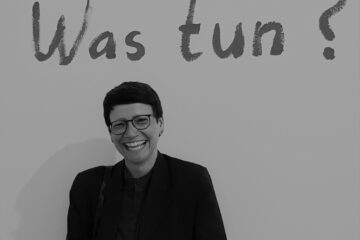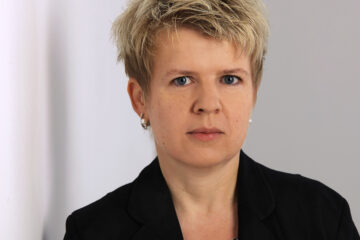As a scholar of motherhood who occupies a distinct transnational space—an emigree from socialist Yugoslavia who has been producing feminist knowledge from within the Anglosphere for over two decades—I welcome opportunities to reflect more systematically on the respective theoretical functioning of the maternal in the context of European and Anglo-American feminist traditions. Given that the thematic focus of the current interdisciplinary lecture series explores why parenthood needs a gender, for the purpose of this lecture I have decided to organize some of these reflections into a theoretical position to suggest that: the relationship of parenting to gender corresponds to the relationship between motherhood and feminism. What I mean by this is that if we wish to understand why parenthood functions as gendered, we must look at how motherhood and the maternal experience are conceptualized and represented in different feminist traditions.
In the lecture, I will elaborate on how the reproductively marked, and female-gendered maternal body is represented and theorized by different intellectual feminist traditions within Europe and outside of it. In the Anglosphere, the biopolitical status of the gendered maternal body, at least since the second feminist wave, has developed in a direction consistent with the push toward women’s equal employment rights and the avoidance of the implications of women’s reproductive bodies with respect to the demands of the labour market. In these contexts, premised on gender equality and hence also gender neutrality, the discursive replacement of motherhood with parenting functions as a principle of progressive politics, but with many accompanying risks, contradictions, and inconsistencies.
Continental European feminist philosophical traditions, on the other hand, historically start from a position of gendered and sexual difference, which enables them to take the maternal body as the beginning of all feminist theoretical interventions, as well as ‘the matrix of all life’. In these contexts, biopolitics is rooted in the feminist tradition of sexual difference, and gender equality is not sought as a basis to affirm a feminist standpoint. From within this perspective, the maternal sometimes seeks to be recognized publicly and even as a basis for political action, manifested as different types of maternalism. Continental European feminist traditions are therefore more intimately and from the start connected to gendered embodiment, or ‘the realm of generation’ associated with the female reproductive capacity.
In the lecture, I will suggest that the degree to which theories of gender equality have been naturalized or rejected in specific socio-cultural and geopolitical locations has implications for private experiences of both parenting and motherhood, but also their public manifestations and the social policies that regulate them.
Biographical statement
Having studied English Language and Literature at Belgrade University (Serbia) and the University of Cyril and Methodius in Skopje (North Macedonia), Tatjana emigrated to Canada where she received a Master’s Degree, and then a Ph.D. in English Studies and Book History from the University of Toronto (2003). In 2004 she joined the Department of English Language and Literature at Saint Mary’s University, where she is currently Chair.
A mother of three children, she has been teaching and publishing in motherhood studies and feminist theory since 2006, when she became an active member of the association Motherhood Initiative for Research and Community Involvement.
She is the author of numerous essays, including recently, “Motherhood Studies and Feminist Theory: Elisions and Intersections” (2018), and “One Is Not Born but Rather Becomes a Mother: Claiming the Maternal in Women and Gender Studies,” (2019). Her 2015 collection of essays, Mothering Under Fire: Mothers and Mothering in Conflict Zones, co-edited with Arlene Sgoutas, Ph.D. examines the nature and meaning of motherhood in times of war through diverse disciplinary perspectives, contributing to the study of gender and conflict and the maternal as a resource for peacebuilding (Demeter Press).
Tatjana’s most recent book, Unforgetting: Voices from Contemporary Bosnia and Herzegovina. (Routledge, 2023 forthcoming), is organized around her conversations with women survivors of war-related sexual violence in Bosnia, and it investigates, among other things, the concept of mother love and gendered agency in women who have raised children born of war rape.
Her teaching and research have been recognized and supported through numerous awards, most recently through the 2020 Grant of the Social Equity Working Group, Universities and Colleges Division of Nova Scotia Department of Labour and Advanced Education.
Kommentar: Sandra Tausel, PhD Candidate & University Assistant, Department of American Studies, University of Innsbruck
Moderation: Flavia Guerrini, Institut für Erziehungswissenschaft, Universität Innsbruck



















